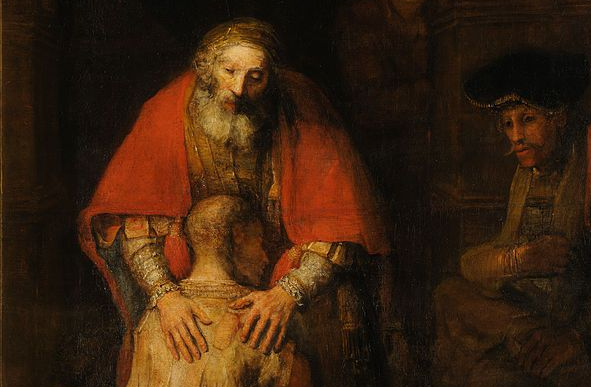David owed him nothing. He was the grandson of an enemy who tried to kill him several times. Now David’s enemy has been put down. Saul, the king of Israel, is dead, and David has acceded the throne as he was promised through the anointing hand of the prophet Samuel years ago. Most of Saul’s house was dead as well, including his son, Jonathan, who was David’s friend. But there was one member of the house remaining: Jonathan’s son, Mephibosheth.
Though lame in both of his feet (2Sm 9.3, 13) and living in “Nowhere” or “Nothing” (Lo-debar; 2Sm 9.5), the blood of Saul still ran through his veins, and there were still some in Israel who might be loyal to the house of Saul. Because of this, Mephibosheth was a rival to the throne. Among the kings of the nations, it would have been common practice and completely understandable to eliminate the last vestiges of Saul’s house so that the potential for a coup would be stopped before it was started. David could even justify this by saying that he was creating peace.
But that is not what David does. He seeks out a member of the house of Saul, not to eliminate, but to extend to him the grace of hospitality. Mephibosheth is shown chesed, covenant-love, from David. David restores his land and makes Mephibosheth a member of his household who will always eat at the king’s table.
King David’s act of mercy and grace is reflective of the King of kings whom he represents. David sits on the throne of Yahweh. (1Chr 29.23) Ordinarily, someone like Mephibosheth, a man crippled in his feet, wouldn’t be allowed to draw near the throne of Yahweh and eat at the same table as the King. Anyone with a physical deformity such as Mephibosheth’s was barred from drawing near. (Lev 21.16-24) David’s act reflects the character and promise of God: In his mercy, God himself will provide healing that will draw near to him those deformed by sin.
So, how will we know great David’s greater Son when he appears? He will act like his father David. He will show mercy and bring healing so that those who are deformed by sin’s effects will be made fit to eat at the King’s table. This is one reason why Jesus comes healing bodies. He is not showing off his power for the sake of showing off. He is making right that which sin twisted; making bodies fit for the kingdom meal. He heals them and eats with them. This is how we know David’s Son.
This merciful, healing hospitality is the standard of judgment by which we discern those loyal to David’s Son. When Jesus eats with a ruler of the Pharisees in Luke 14, we see David’s mercy contrasted with the present rulers in Israel; those who would love to claim David’s throne in some form but don’t share his character. Jesus begins by healing a man with dropsy or edema (that is, excessive fluid retention caused by congestive heart or kidney disease). He too would have been excluded from a feast before the King’s throne because of his deformity. Toward the end of the episode at the ruler’s house, Jesus tells them that a man had a great banquet to which he eventually invites the poor, crippled, blind, and lame, all people who have no claim on a position at the table. Echoes of David and Mephibosheth reverberate through this episode. Jesus is great David’s greater Son and the rulers in Israel are not. They will be rejected by Yahweh while Jesus will be exalted to sit as King.
Those loyal to David’s son, Jesus, are still known by their merciful, gracious, healing hospitality. We are those who announce God’s healing from sin and its effects, proclaim forgiveness to the repentant, and bring the healed souls to the kingdom table before the throne of King of kings each week. Those who share the character of David and his Son are David’s sons indeed.
















